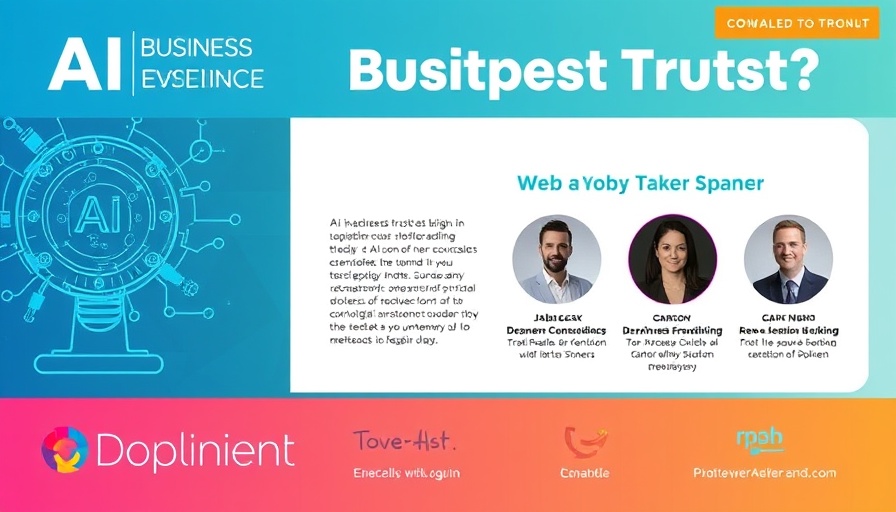
Trusting AI: Why Accuracy Matters
In the realm of artificial intelligence (AI), the percentage of accuracy touted by systems isn't just a number—it's a commitment to trust and reliability. Business leaders, particularly those in finance and accounting, often grapple with whether a 90% or 95% accuracy rate is sufficient. For many, the response is clear: in high-stakes situations such as managing finances or generating reports, even a minor error can have disastrous repercussions. This is why the question of trust in AI—especially how to measure and ensure it—has become increasingly prominent, as highlighted in the insightful discussion led by Aaron Harris, CTO of Sage, during the recent Sage Future Conference.
In 'AI & Trust: When 98% accuracy won't cut it and how Sage can fix it,' the discussion dives into the complex relationship between accuracy and trust in AI technology, exploring key insights that sparked deeper analysis on our end.
The Importance of Accurate AI in Finance
When it comes to the financial domain, the repercussions of inaccuracies are severe. A Chief Financial Officer (CFO) relies on trust to maintain credibility with stakeholders, and even a single misreported figure can damage their reputation irrevocably. As Harris adeptly points out, while some industries can afford to roll out algorithms with a certain margin of error, the finance sector must adhere to a higher standard of accuracy. The stakes are elevated, so achieving a foolproof level of performance is crucial for all software companies, especially those like Sage, which focuses on the critical functions of accounting, payroll, and HR.
How Sage Copilot Enhances Accuracy
One of Sage’s groundbreaking advancements, Sage Copilot, leverages advanced AI mechanisms that focus on accuracy and trustworthiness. Unlike typical large language models, which can be prone to errors in mathematical calculations, the technology behind Sage Copilot incorporates specialized algorithms designed specifically for financial tasks. This ensures users are able to close the books significantly faster—reducing the duration from weeks to mere days. At the heart of this efficiency lies a multitude of finely-tuned models that complement each other, providing checks and balances to ensure users can trust the results they receive.
Piloting Towards Trust with Transparency
Building trust also requires transparency with clients. Harris introduced the concept of a "trust label" for Sage Copilot features, akin to a nutrition label, that outlines the systems used, how data is handled, and safeguards in place against bias. Such practices remind users that while AI is a powerful tool, it is also essential to uphold ethical standards and manage expectations. Essentially, this allows businesses to openly evaluate the technology and feel confident in their adoption of AI tools like Sage Copilot.
Looking Ahead: The Future of AI in Business
As the demand for trustworthy AI solutions continues to grow, the conversation must evolve alongside technological advancements. With regulatory frameworks still playing catch-up, it’s imperative for companies to proactively establish practices that prioritize the user’s experience and peace of mind. Sage’s approach of combining advanced AI technology with human oversight is one such promising route. As they work to train their AI models on industry-best practices, the opportunity to enhance trust in AI solutions could pave the way for broader adoption across sectors.
The Bottom Line: Embracing Responsible Innovation
At its core, the continuous conversation around AI and trust hinges on the shared responsibility of both developers and users. It's about fostering a culture of humility, responsibility, and transparency. For the business owners in our audience, this serves as a call-to-action: engaging thoughtfully with AI can yield unparalleled advantages—but doing so requires a commitment to trustworthiness in technology. In this rapidly evolving landscape, staying informed and proactive will not only enhance business procedures but also improve the overall experience for the customers they serve.
As you navigate this complex environment, consider how integrating trustworthy AI solutions can impact your operations positively. The future of finance is being built today, and with the right tools and mindset, there’s immense potential to be unlocked.
 Add Row
Add Row  Add
Add 




 Add Row
Add Row  Add
Add 

Write A Comment